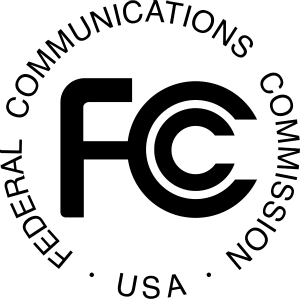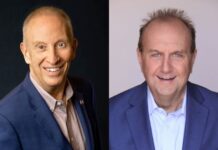
The elimination of the Main Studio Rule certainly created a ton of debate amongst Radio Ink readers. The columns by Franklin Raff and Jay Meyers both generated a lot of passionate feedback. And, just like the FCC vote (3-2), our readers were split. Good arguments were being made for both keeping it and scraping the rule. Some called it an archaic rule that made no sense and prevented broadcasters from hiring more people and creating new local programs due to the expenses involved in maintaining the studio. Others believe it’s just another feather in the cap of “Big Radio,” companies allowing them to do even less local programming and ignoring the local communities. Here is just a taste of the feedback we received.
Richard McGraw is the GM of WCDE Radio at Davis and Elkins College in Elkins, WV. McGraw tells Radio Ink this was a financial thing of the Commission’s making. “Ms. Rosenworcel must be able to look at the past rules that the government brain trust has implemented and go from there. In my situation, let me take you back to 1982 — Elkins, WV. My wife and I started WELK – an FM station. The city of about 8000 people already had a full-time AM station. Together, both stations lived comfortably…we had full-time news departments and local public affairs. We took great pride in the friendly competition. Who would be first to get live coverage of the news event? Life was good — and radio was a vital part of the community’s life…and they returned the love.
Then came such wonderful decisions as the 8090 drop-ins and such …and the number of stations in our area exploded. All that with little if any growth either in population or commercial base. So, we were all forced to start cutting to live within our finances. Sure it wasn’t pretty … but you do what you have to do to stay alive. News departments shrunk — one by one. Public affairs and similar programs went out the window. And yes, satellite programming started in overnights, then evenings, then further down into the day.
Incidentally, by the time we sold WELK to the major group owner in the state in 2005, there were 14 (yes, 14!) stations feeding on our local community. So, the Commission’s idea of providing more voices actually did away with good “local” radio … and forced the economy of operation that necessitated centralized operations — often many miles from the city of license.”
Richard can be reached at [email protected]
Jim Carlyle is the Owner, Manager and Morning Show host at unranked WION in Ionia, Michigan. Carlyle says sweeping away the Main Studio Rule does not by itself help to “fix” the economics of small-market radio. “Those stations who do not have the cash flow to support a main studio and need to consolidate or move probably have bigger problems. Everyone points fingers, but ALL the issues affecting radio these days go back to the issue of the (on-air) product provided vs. public acceptance OF that product. Together, that equals either the success of a local station, or it’s failure. It’s basic economics! You can sell programming that’s connecting to listeners and business owners. You can’t if you have little or no control over content. Throwing a life preserver to stations that can’t afford to maintain a local studio is putting a band-aid on a corpse. What stations needed long before this vote (and still today…it’s not too late) was responsiveness by ownership, staff, and management within their stations’ communities, attention to detail in the execution of programming, and making sure human voices address listener concerns 24/7, which, in our “virtual” world, is not difficult to do…even with a small staff! Eliminating studios, and adding FM translators to repeat uninteresting programming won’t fix AM, FM, or small-market radio. Stations have to work to be IMPORTANT to our listeners, and to remain top of mind! We’re supposed to be marketing experts, yet we don’t market ourselves well as an industry. Maintaining a clean, positive connection to listeners, organizations, non-profits, and yes, LOCAL BUSINESSES is how local radio survives. None of that is served by the removal of studios, or the creation of extra repeating signals.
Our AM was brought back from the dead a little over 13 years ago, off the air, no signal, no accounts, no format, nothing, and an aging physical plant. Through 13 years of hard work and knowing our community by actively working IN it, we celebrate AM! Yes, we were early into having a translator, but our AM was paying it’s bills for five years before the FM came along, and it’s known in our community for its AM. It was the creating of content our local residents, including businesses, would listen to that helped us grow. Using a satellite wouldn’t have made it. Oh, and by the way, we’re proud to bring guests to our studios on a regular basis for interviews, and some for tours.
We even hold an on-air Christmas party the Friday before the holiday, and it’s wall-to-wall people. Would be hard to do that…without a studio, wouldn’t it?
Jim can be reached at [email protected]
Denny Farrell hosts a syndicated Jazz program which can be heard on www.NowAndThenTalkRadio.com. He says this is all about serving the local community and that went out the window with deregulation. “All this started when, Bill Clinton deregulated the FCC. It’s rare to find a local radio station today that actually cares about the community it serves. AM and FM radio stations have shot themselves in the foot over and over again. Time for a reminder to all AM and FM station owners, large, medium, or small markets, on just who they serve. It’s simple. Come back to your community and be a full-time partner of what goes on. Radio station owners for the most part are not radio people today and don’t have a clue about a broadcast commitment to the local people who patronize their sponsors if they have any. Take politics out of radio and serve your community. This is not a HOBBY it’s a full time commitment.”
Denny can be reached at [email protected]
Bill Putney is the Chief Engineer at KPTZ in Port Townsend, WA, a small community full-service FM in rural Washington State. Putney says this FCC doesn’t really care about broadcasters. Chairman Pai babbles on about how much he cares for broadcasters and how he cares about service to rural communities. Unfortunately, the new FCC doesn’t really care about “Serving the public interest.” Turns out, Pai’s version of the FCC only cares about the money interests behind big network broadcasters. If the FCC really cared about “serving the public,” they’d make some rules that require broadcasters to engage with their communities. The EAS system is not a public information system. It’s the radio equivalent of a Post-it note left on the door to the storm shelter saying “Storm!” If you happen to be passing by and see the note, you’re in luck. If not, there’s no other obligation a broadcaster has to warn or inform you.
Even before we went on the air six years ago, we worked closely with our county Office of Emergency Management to set up a dedicated microwave system between their command center and our studios. They even set up a small studio for us in the Emergency Operations Center. We had staffers go through the FEMA training so they could be credentialed to be in the EOC and broadcast from there during an emergency.
We operate in a rural mountainous county in Western Washington which will be physically cut off after the expected 9.5 earthquake and tsunami. We work hard to prepare and serve the people in our county during emergencies because it’s the right thing to do. We’re the only live radio broadcaster in our county. Our 2200-watt transmitter doesn’t cover the entire county but a few well-placed translators would solve that. We’ve only been on the air for six years but there hasn’t been a translator filing window for over a decade. Instead, the FCC is “improving AM” by making them FM stations. We still struggle to receive the 50KW AM EAS Primary 50 miles away. There are no FCC rules to permit licensing needed service outside prescribed windows “in the public interest.” But we see instead special rules “in the moneyed interest of a few.”
This week the FCC abolishes the Main Studio Rule. I’m expecting any day now to see an NPRM to remove the main transmitter rule for AMers so that they can keep their FM translators and turn off their expensive and ineffective AM transmitters and sell the real estate for condos and shopping malls.”
Bill can be reached at [email protected]
Maynard Meyer tells Radio Ink people don’t seem to get that being local means more than just providing local programming. “It means being an active part of the community you serve. It means living and working in the community, interacting with others in the community, being an active member of organizations, and really caring about the future of the community you’re licensed to serve. Even before the latest move I can give you a long list of communities that no longer have radio stations because their license was purchased and the station is now run out of a nearby regional center. You’ll see more of this now. The argument that licensees will still serve their community when they no longer have a physical presence there is a myth. I have been in small-market radio fulltime for 43 years, I know what I’ve seen, I know what has happened, and I know what WILL happen. Elimination of the main studio requirement is a really bad idea for the future of radio broadcasting. Franklin is right on the money.”
Maynard can be reached at [email protected]





